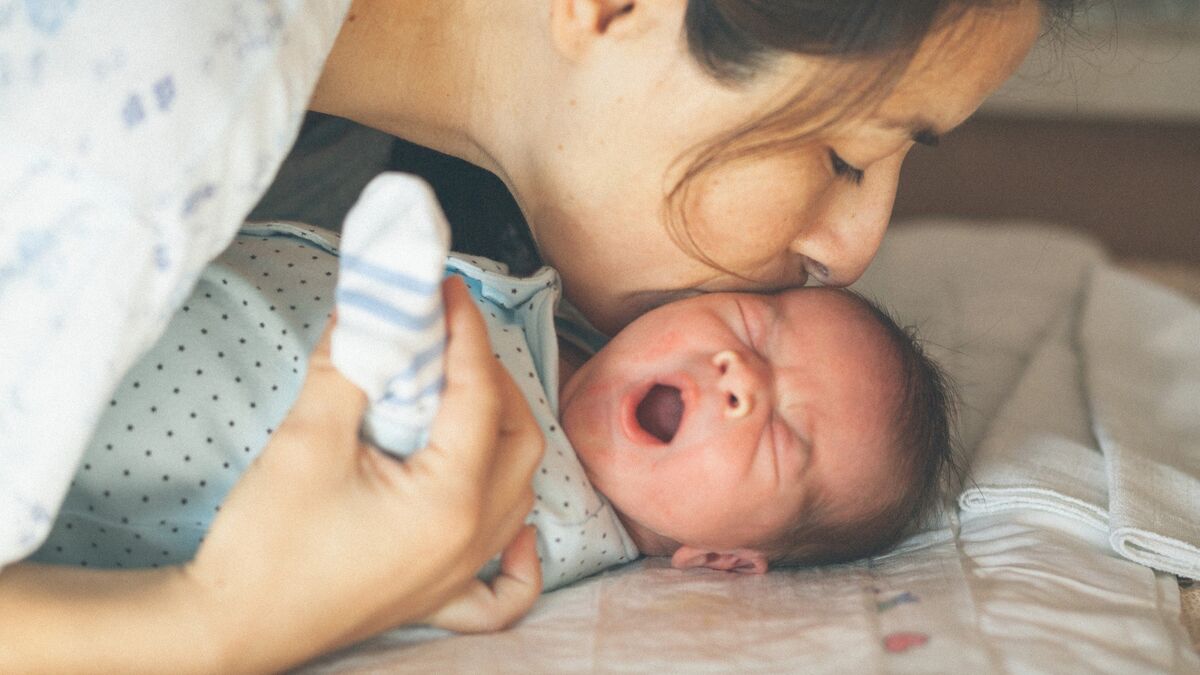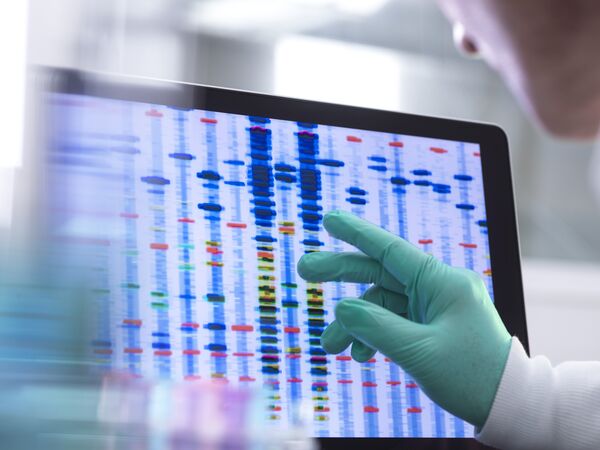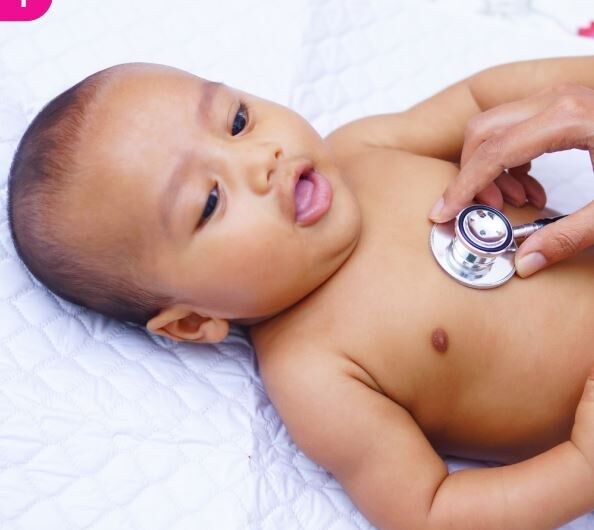Newborn Genomes Programme
Designing the NHS-embedded Generation Study

The Generation Study
Every year hundreds of babies are born in the UK with rare genetic conditions. Early intervention can enhance the health and quality of life of many of these babies. But these conditions can be hard to diagnose, leading to delays in care.
The Generation Study is a groundbreaking research study which will sequence the genomes of 100,000 newborn babies. We are running our study in partnership with the NHS to understand whether we can improve our ability to diagnose and treat genetic conditions.
Our study has been developed following extensive consultation with the public, parents and families affected by rare conditions as well as healthcare professionals, policy makers and scientists. It will involve babies born in a number of different hospitals across England. The results will add to evidence that will inform future decisions on using whole genome sequencing to support newborn screening. This includes using it to accelerate diagnosis and access to treatments for rare conditions.
There is more information available on our website for parents who are invited to participate in our study. Translated materials are available on the site.
Learn more about how the Generation Study works by watching this video.
Aims of the Generation Study
The rare conditions that the Generation Study will screen for

We are using whole genome sequencing to look for changes in genes linked to more than 200 rare conditions. The conditions we test for:
- Usually appear in the first few years of life
- Can be improved if caught early
- Can be treated through the NHS in England
These conditions have different types of symptoms but can all cause someone to be more sick than the average child.
To find out more about the conditions we are screening for you can have a look at how we chose the conditions and the list of conditions we are looking for.
How was our study designed
We have worked with parents, the public, rare condition communities, and key stakeholders in the NHS, academia and Government to explore the practical, ethical and societal questions our study raises and how best to deliver it. From a national public dialogue in 2021, we have used a range of approaches including user research to co-design our study, develop materials collaboratively, and discuss with different communities. This work was essential to receiving Health Research Authority approval to run our study and favourable opinion from the Research Ethics Committee.
We are committed to promoting equitable access to the Generation Study. Expectant parents from a diversity of backgrounds, socio-economic, geographic and language groups will be invited to participate.
Our Generation Study Protocol is available on our website.

Roadmap
-
1Vision development - 2021
-
2Co-design of the Generation Study
-
3Health Research Authority review of the Generation Study's protocol
-
4Recruitment of participants of the Generation Study begins in a selection of the NHS Trusts
-
5NHS review of the study to inform future decision on services
Why our study is separate from standard NHS care
Our study is for research, so it is optional and separate from standard NHS care. Every baby in the UK is currently offered the NHS newborn blood spot screening (the ‘heel prick test’). This looks for specific rare, serious and treatable health conditions. It is standard NHS care and is recommended. The Generation Study does not detect all forms of the conditions currently included in the blood spot test and is not a replacement for the test.
How is our study addressing ethical questions
The Generation Study raises a complex set of ethical challenges. Some of these are emerging in newborn genomic screening studies globally and some are unique to the UK context. We are embedding an ethically robust approach through tackling these challenges head-on, orientating our study within a strong ethical framework and promoting flexibility in responding to ethical issues. Our discussions on ethical issues like the consent process, withdrawal and recruitment have been assisted by the Newborns Ethics Working Group, and our wider stakeholders.
How we look after the data and samples
We securely store data and samples from all participants in the study.
Participants’ genome and health data are stored in a data base called the National Genomic Research Library. It can only be accessed by approved researchers who won’t be able to see the identities of participants. Researchers could come from hospitals, universities, charities or healthcare companies. They can use the data to learn more about genes and health, find new conditions, and develop new treatments.

How we have built on our existing knowledge and expertise
Through working in partnership with NHS England to deliver the 100,000 Genomes Project and the NHS Genomic Medicine Service, we at Genomics England have established infrastructure to support the use of whole genome sequencing, and the diagnostic and treatment pathways for children and adults with symptoms, and have developed the sequencing and analytical tools to ensure a safe and effective service.
We have a strong record of keeping data safe in other studies and manage who has access to the data in the National Genomic Research Library, which includes data from thousands of individuals with consent.
The Baby and Mum Samples Study

The Baby and Mum Samples Study (BaMSS) aimed to answer the question: ‘what is the best way to take a sample from a baby, in order to sequence their genome?’ This was vital to inform the samples we take in the Generation Study, as we rely on attaining and analysing high-quality genome sequences from the 100,000 babies who take part.
This is how we made the decision to take cord blood as the primary sample for Generation Study participants. In 2022, samples donated from 600 mums and babies at five NHS sites across England helped us to answer this important question. We received approval from the Health Research Authority to run this study.
We are hugely appreciative of all of those mums and babies who took part. We would also like to thank the NHS teams who supported our study at Chelsea and Westminster Hospitals, Liverpool Women’s Hospital, The Royal London Hospital, West Middlesex Hospital, and Whipps Cross Hospital.
Please contact us if you would like further information about the BaMSS study.
Information on how parents are invited to take part

A network of selected NHS Trusts in England are participating in our study. Only parents with babies born in the participating hospitals will be able to take part. Not all the of the hospitals will be starting at once.
For parents who are invited to participate in our study, there is more information available on our website. The participant information sheet is available on the site in 10 languages.
Any questions?
For any questions please contact [email protected].